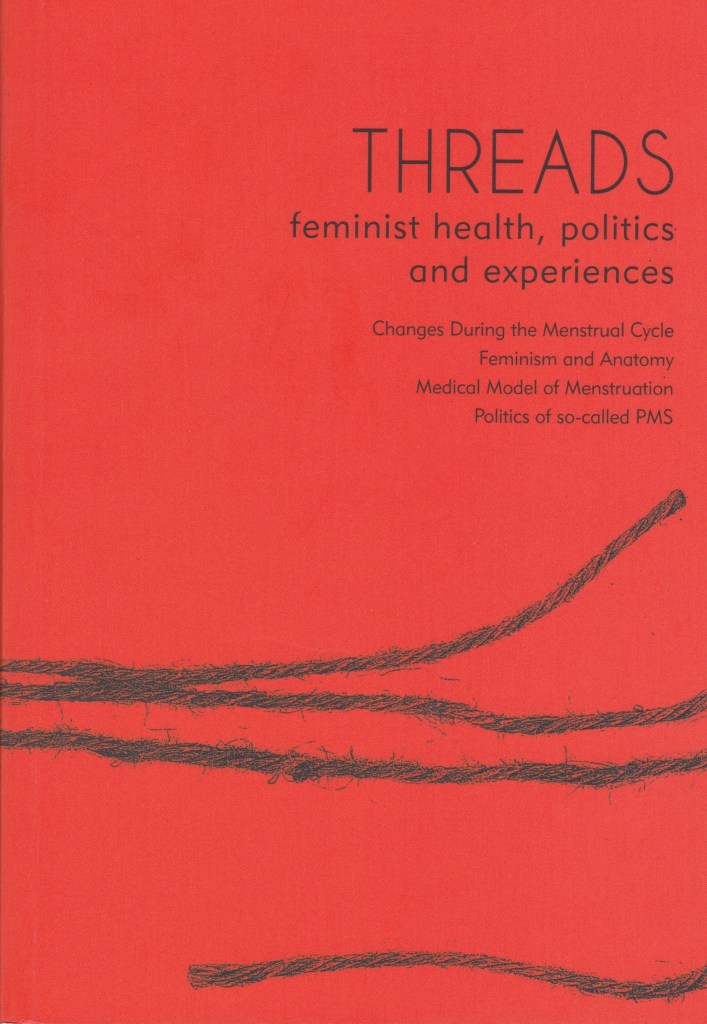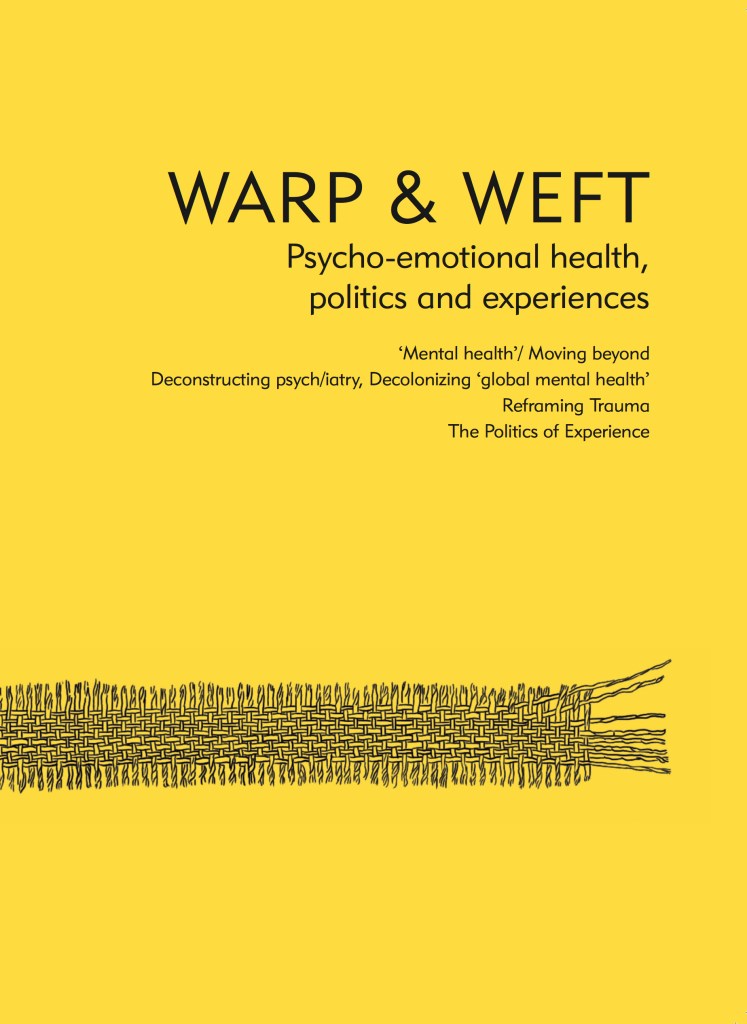Threads and Warp & Weft are two books concerned with different aspects of health, healing and social justice. Threads looks at some ideas and information around feminist health and Warp & Weft at psycho-emotional health. There’s information about both of these not-for-profit books below, on other pages there are ways to order paper copies, access the free pdfs, and some related resources.

Threads combines quotes and excerpts (from a whole load of different places including self-help publications, academic sources, zines), my writing, personal stories, illustrations and images.
It’s a collection of information, thoughts and ideas that were the basis of workshops about the experiences and politics of the menstrual cycle and what gets called ‘PMS’, which also included information and discussion about anatomy and sexuality.
The motivation for the workshops was to share information and discussion about things in the broader social, political and economic contexts we are living in. The info from those workshops was all collated into the book and the ideas were expanded on.
Part One looks in detail at changes that can be experienced during the menstrual cycle (like changes in body fluid secretions, position of the womb/ cervix and os, changes in body temperature and changes in energy, sensory perception, dreams etc). Part Four expands on some of the changes that can be experienced during the menstrual cycle and discusses what gets called ‘PMS’ or pre menstrual syndrome. It looks at how and why western medicine defines a whole breadth of experiences many of us can have as illness.
Part Two looks at the history of western anatomy and at different understandings of the human body (i.e. Chinese Medicine) and then has a mass of information about what gets called female anatomy, and sexuality, which has come directly from collective observation and lived experiences.
Part Three discusses in detail how western medicine describes and defines the female body. It critiques the medical model of menstruation and looks at some different understandings of menstruation that predate reductionist western medicine and from different cultures. In Part Three there is also an outline of how awareness of the changes that can happen during the menstrual cycle (Part One) can be used as a method of contraception.
Published January 2008, reprinted with a new preface 2018.
Paperback. 193 pages. £6

Warp & Weft gathers together ideas, radical frameworks and reference points to explore consciousness, and ways of understanding experiences of distress as they occur within our social and systemic contexts.
It looks at what gets called ‘mental health’ and challenges the idea that our experiences of distress, struggle or variable consciousness are only ‘mental’. It challenges the way biomedicine splits mind from body and soul, and names that we are embodied beings, who are shaped by and unfold within the contexts we have inherited and live in.
It looks at some of the history of psychiatry and examines the ways it has been, and continues to be used as a colonial force. It reframes trauma; it looks at the effects of trauma in the bodymindsoul, acknowledges the intersection of personal and collective trauma, and explores ways we might move towards healing.
Warp & Weft considers how we are given cultural ‘scripts’ for experience, and how we might relanguage experience on our own, and non-medical terms. Terms which address root causes of distress and point towards holistic approaches, in order to foster liberatory personal and collective transformation.
Published June 2021.
Paperback. 438 pages. £10
